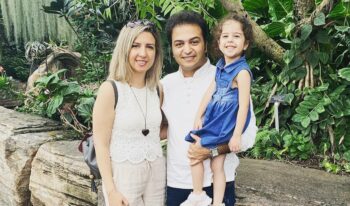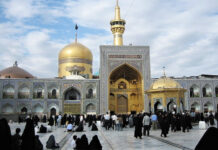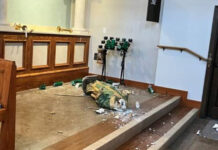An Iranian Christian couple recently resettled in Canada have spoken of their longing to finally be able to call somewhere “home”, having spent

seven and a half years as refugees in Turkey.
Earlier this year, Article18 released a report outlining the “critical need” for new resettlement opportunities for the hundreds of Iranian Christian refugees in Turkey, and Naghmeh and Yashar’s story offers a further reminder.
Speaking to Canadian charity One Free World International, which aided their resettlement, Naghmeh said she and her husband are still struggling to come to terms with being able to call somewhere “home”, having lived for so long as “landless” people.
“When we were in Turkey for seven and half years, we didn’t have any land,” she explained. “They called [us] on our ID card that ‘[they have] no land’. And we sort of got used to it, that we don’t have any land.
“When we arrived [in] Canada, the first thing that I tried to repeat it in my mind and my heart [was] that ‘this is home’, the thing that we [didn’t] have even back in Iran.
“Iran is our home, but you feel that this is not your home, because somebody else just took it from you. And in Turkey also, we [didn’t] have a feeling that this is our home. But when we came [to Canada], we [felt] that ‘OK, this is a free land, and this can be my home.’
“And I still struggle a lot to feel it, because we [got] used to [not having] any home, or any land to call home. But every single day, we try to remember that this is our home and this is a place that we have to live for the rest of our life.
“So it is challenging, but full of hope, full of enjoyment, that at least you are in a safe place and you can call it home.”
Naghmeh explained how she and her husband, who are both Christian converts, fled Iran after 50 of their Christian friends were arrested on Christmas Day.
“We don’t know why [the intelligence agents] didn’t come [for] us,” she said. “But they asked [our friends] about us, so we know that they [also knew] us.”
Then, after travelling to South Africa, their pastor was contacted by intelligence agents, who wanted to know more about the couple’s trip. “So we realised that they really monitor us and they know us,” Naghmeh explained.
At that time, Naghmeh and Yashar belonged to an Assemblies of God church, which offered services in the national language of Persian, but their church was one of many such churches to be ordered to cease this provision, and then forcibly closed.
“We came back [from South Africa], and they closed the churches,” Naghmeh recalls. “They had our ID cards – they asked for our ID cards [and] many people [gave their] ID cards to the government [which said that] we are Christian. [And] after that they closed the church.”
Naghmeh and Yashar then went on to lead underground churches, but after taking a group of fellow converts to Armenia to be baptised, they returned to discover that their closest friend had been arrested.
“So we knew that they are so close to us,” Naghmeh said. “We came back to Iran, we didn’t do the baptis[m] because [we were] afraid … and after a few days my husband got a phone call from an unknown [number].”
Naghmeh said they “knew what that meant” – that it was the intelligence service – “so we decided to come to Turkey”.
“My father said that, ‘It’s good to go to Turkey for a week and just see what is happening,’” she said. “And after a few days, my father called me and said, ‘No, [the agents] are coming to the door and said, ‘Where are they?’, and so because of that we [had] to go to the UN and become refugee[s] in Turkey.”
Naghmeh said she and her husband had just bought a house in Iran and “didn’t want to be refugees”, but felt they had no choice but to “leave everything behind, flee to Turkey, and start our life as refugees”. — Article 18






